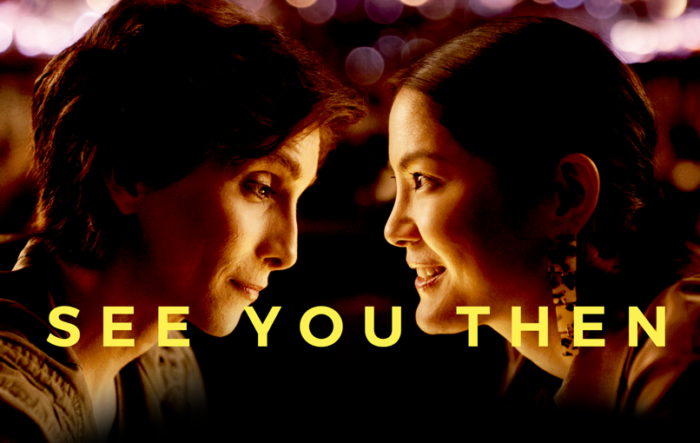VOD film review: See You Then
Review Overview
Performances
7Writing
8Cinematography
5Cathy Brennan | On 15, Apr 2022
Director: Mari Walker
Cast: Pooya Mohseni, Lynn Chen
Certificate: 15
In response to the ever-increasing box office dominance of franchise films, critics often bemoan the lack of grown-up stories in American cinema. Whether that’s true or not, so long as works such as See You Then continue to be produced and seen, film will continue to be a vital medium for mature storytelling.
Set across a single evening, Mari Walker’s feature debut tells the story of two women catching up. Naomi (Lynn Chen) is a performance-artist-turned-academic who is meeting her ex, Kris (Pooya Mohseni), for the first time since Kris’ transition. It’s quickly made clear from the awkward meal at a restaurant that their relationship ended on bad terms. Kris left without warning or explanation, the mental toll from repressing her gender dysphoria having become overwhelming. Throughout the course of the film’s short runtime, there’s a constant push and pull between healing and residual bitterness on both sides.
In terms of aesthetic, See You Then is rather lacklustre. This is particularly noticeable in the cinematography, where shifts in focus come across as shoddy. However, a film like this relies more on the strength of its writing and performances. With this in mind, See You Then delivers where it counts. Chen and Mohseni both ably navigate the emotional contours of a script that offers a raw portrayal of womanhood.
Motherhood is a central theme of the film. Naomi is now married with two kids, while Kris wishes she could have had her own biological children. This is perhaps the most fundamental difference between cis and trans women, so kudos to Walker and co-writer Kristen Uno for broaching it. Being able to give birth can be patronisingly referred to as a cis woman’s “superpower”, but such platitudes tend to erase the complex feelings women have about motherhood. Throughout the film Naomi expresses deep ambivalence about being a mother, feeling that she has given up a part of herself to fulfil a role she is not cut out for.
The journey both women take into the past draws out their differences and the conflict that arises is understandably acrid. The script gives equal weight to each woman’s perspective, so this isn’t a work where one takes sides in the way that a film like Marriage Story might encourage. Naomi’s hurt over the way Kris left her is etched in her posture. At the same time, one can see the flickers of frustration in Kris, when Naomi almost unconsciously trivialises her transition.
Rather than providing a neat conclusion, See You Then recognises how failed relationships rarely resolve themselves and never truly end. It is a work of refreshing maturity on the differences between cis and trans women.



















